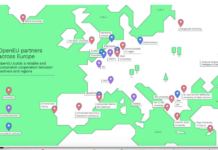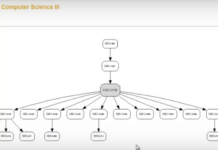Distance Education, Vol. 32, No. 2, August 2011
This edition, edited by Neil Butcher, Colin Latchem, Monica Mawayo and Lisbeth Levey, is focused on distance education for empowerment and development in Africa. It focuses particularly on the experiences emerging from the PHEA ETI project, an initiative funded by five foundations in the USA to support seven African universities in making effective investments in e-learning and educational technology strategies. It also draws on the experience of OER Africa in other institutions.
The articles include:
case studies of use of distance education and e-learning in a diverse range of contexts,….an evaluation of the use of mobile learning in schooling; and a strong theme on the significant growth of OER development and use in African higher education.’
In a thoughtful editorial, it is noted that
Many African countries still have a weak identity in the digital landscape due to poor broadband penetration, which maintains or widens the divide between developed and developing countries. Within its own spaces, Africa also experiences huge digital divides between rural and urban areas…which cause an institutional divide for universities with urban and rural campuses.
In other respects, African institutions face very similar challenges in the use of e-learning as their Western counterparts: the deadening effect of the dominant organizational culture; centralization vs decentralization of support services; the relationship between academic and ‘every day’ knowledge and applications of technology; copyright and intellectual property; the quality and value of OERs, especially those developed in a different cultural context; and the difficulties of providing adequate faculty training.
The editorial ends with four conclusions:
- investments in educational technology in Africa must help solve challenges rather than exacerbate them (e.g. regarding access)
- capacity building in educational technology, including African researchers, is essential
- the technology facilitates collaboration within Africa, and with more developed countries, and is especially important for the development and use of locally applicable OERs
- the simplest strategies usually work best.
The dozen or so articles in this edition are essential reading for anyone interested in the state of distance education and educational technology in Africa. It will be of particular value to those interested in the factors that facilitate or inhibit the adoption of OERs in Africa. It will also be valuable for those interested in the issue of technology transfer and accommodation.
Unfortunately, though, the journal itself is not an open publication. A subscription or access to a university library is required.










 Dr. Tony Bates is the author of eleven books in the field of online learning and distance education. He has provided consulting services specializing in training in the planning and management of online learning and distance education, working with over 40 organizations in 25 countries. Tony is a Research Associate with Contact North | Contact Nord, Ontario’s Distance Education & Training Network.
Dr. Tony Bates is the author of eleven books in the field of online learning and distance education. He has provided consulting services specializing in training in the planning and management of online learning and distance education, working with over 40 organizations in 25 countries. Tony is a Research Associate with Contact North | Contact Nord, Ontario’s Distance Education & Training Network.

